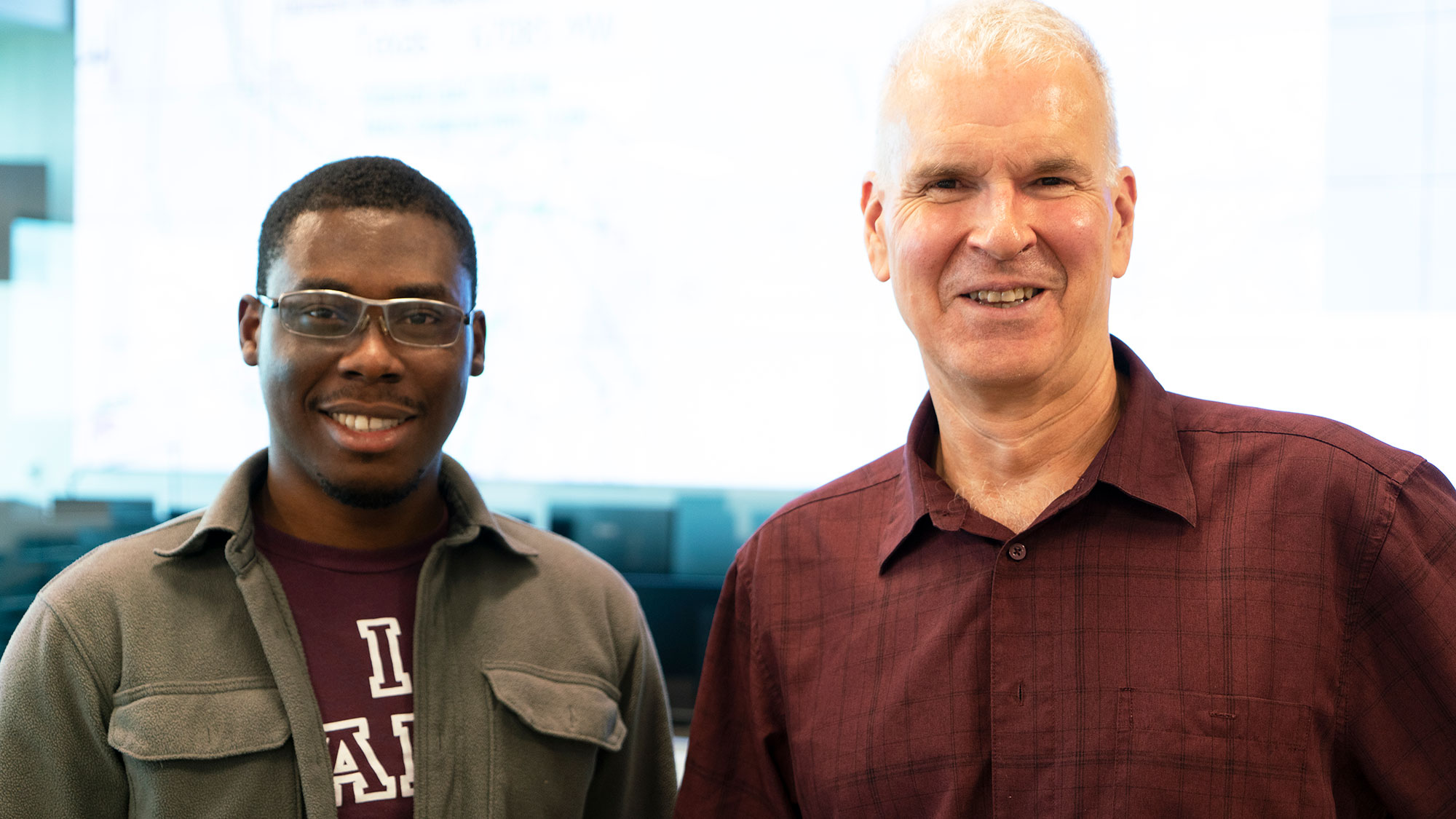
The electric grid is something that we may take for granted in our daily lives until an outage occurs. Ikponmwosa “Iyke” Idehen is a doctoral student in the Department of Electrical and Computer Engineering at Texas A&M University working with Dr. Thomas Overbye on a two-part research project to better understand the dynamics of the electric power grid to avoid these types of disturbances from happening.
Idehen grew up in Nigeria where he completed his undergraduate degree. Prior to starting his Ph.D. program, he had worked as a branch operations staff and information technology datacenter operator in a Nigerian bank for three years, and had lost all hope of becoming an electrical engineer. Idehen made the decision a couple of years ago to return to graduate school to pursue his career goals even though it was a tough and risky choice, and he is glad he did it because he knows he can make a difference.
Currently, Idehen is diving into exactly what causes electrical outages to better detect an issue, thus preventing outages and blackouts in the first place. To do this he uses measurements acquired from the grid itself. By isolating useful information from the grid, he is able to visually display an accurate representation of the state of the grid so that key stakeholders, such as operators, can tell what is going on and carry out a control action to save parts of the grid. Working to visually display what is happening where on the grid is an integral part of Idehen’s work.
He obtains grid measurements using a device known as a phasor measurement unit, which gives researchers the ability to implement an X-ray-like analysis on the system. With this device, previously low-resolution measurements can now be received at an expedited rate.
 Depending on the project, Idehen could be given data from the actual grid or use synthetic data that is derived from real-life data. Authentic data from the grid can be hard to come by because there are many privacy laws prohibiting its distribution. Once he obtains data that he can work with, he scans it for errors to be sure that before data analysis begins, the data is clean and correct.
Depending on the project, Idehen could be given data from the actual grid or use synthetic data that is derived from real-life data. Authentic data from the grid can be hard to come by because there are many privacy laws prohibiting its distribution. Once he obtains data that he can work with, he scans it for errors to be sure that before data analysis begins, the data is clean and correct.
“Once all the data has been analyzed for errors, I try to identify disturbances in the system,” Idehen said. “Are there any hidden, low frequency disturbance signals? You want to detect them on time before they lead to larger disturbances, which can cause outages or blackouts. We are trying to prevent that by using different methods to improve an operator’s situational awareness of the grid.”
Idehen will complete his doctoral degree in 2019.